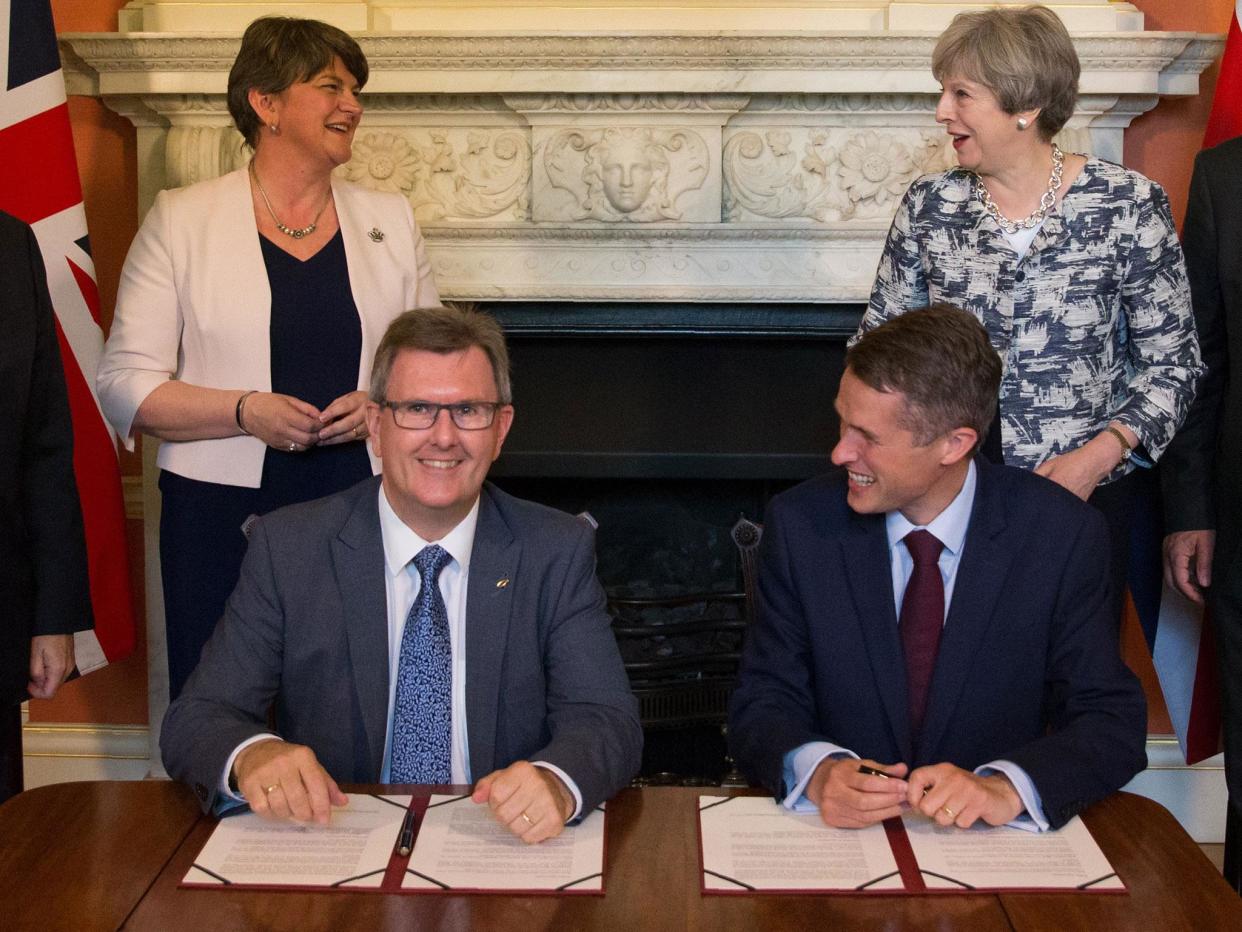I am the only living person who has arranged a confidence and supply agreement with a minority government – this is what they’re really like

I am the only person living who has arranged a confidence and supply arrangement in the House of Commons, which is why I look on the present one with considerable misgiving. In 1977, I led 14 Liberal MPs into an agreement with James Callaghan’s Labour Party, when he fell short of an overall majority after the general election.
The first thing to note is that such an arrangement is far from being a coalition, and the tail should not expect to wag the dog.
We have a Prime Minister who is “just about managing”, but at a huge price – and I am not just referring to the pork barrel aspect of her deal with the DUP. The photographs in front of Number 10 are more reminiscent of the Rose Garden Coalition of 2010. You will not find a single photograph of James Callaghan with the leader of the Liberal Party in 1977 – except at the Cenotaph when we had Margaret Thatcher safely separating us!
A confidence and supply agreement is exactly what it is – the DUP said immediately after the election that they would support the Government in the national interest. That should have been the end of the story. Journalist Simon Heffer has written that May’s colleagues are “alarmed by the meal she has made of doing what was supposed to be a straight-forward deal with the DUP”, and I agree.
In 1977 I talked with the Prime Minister on a Monday evening and the Lib-Lab pact (as it became known) was agreed by the cabinet on the Wednesday morning. A minority party then as now, the Liberals faced the stark choice of inflicting a third general election on the country in three years, or supporting the government in the national interest in the midst of a financial crisis – and it worked. The pound rose immediately and over the next sixteen months we reduced substantially the destructive rate of inflation. Sadly James Callaghan did not go to the country in the autumn of 1978 after the end of our agreement, but soldiered on alone into the Winter of Discontent.
Many commentators have written that the Liberal Democrats did not get much out of the agreement. That is true, but what we did get out of it was a reputation for reliability and accepting responsibility. We did veto a couple of pieces of doctrinaire Labour legislation which therefore never reached the floor of the House of Commons, achieved changes to the budget, got a free vote on the European Parliament proportional system for elections, and tax incentives for profit sharing by companies (subsequently developed further by Tory chancellors).
We certainly did not ask for £1bn.
Today’s long drawn out and unnecessary negotiations are what the former Conservative Party chairman Lord Patten has rightly called “toxic”, not just because of the extra money, which Scotland and Wales will regard with justified anger, and not just because of the DUP’s prehistoric views on gay rights, abortion and climate change.
The peace process in Northern Ireland is precious to all of us in the United Kingdom, and Sir John Major has warned of the dangers to it. I have great respect for the Northern Ireland Secretary James Brokenshire, but he has been put in an impossible position as the supposedly honest broker, and if the restoration of devolved government to the province is not achieved by the deadline this week, he may have to step aside to allow perhaps yet another Senator Mitchell to act as impartial referee instead. The government of the Irish Republic must also be wondering what the chances are of maintaining a barrier-free border, post Brexit.
The present cobbled-together extorted and extortionate arrangement reflects badly on the Prime Minister – she will get her programme through the Commons in the short run – but at a terribly damaging price. Strong and stable it is not.
Lord Steel of Aikwood was leader of the Liberal Party 1976-88.

 Yahoo News
Yahoo News 
